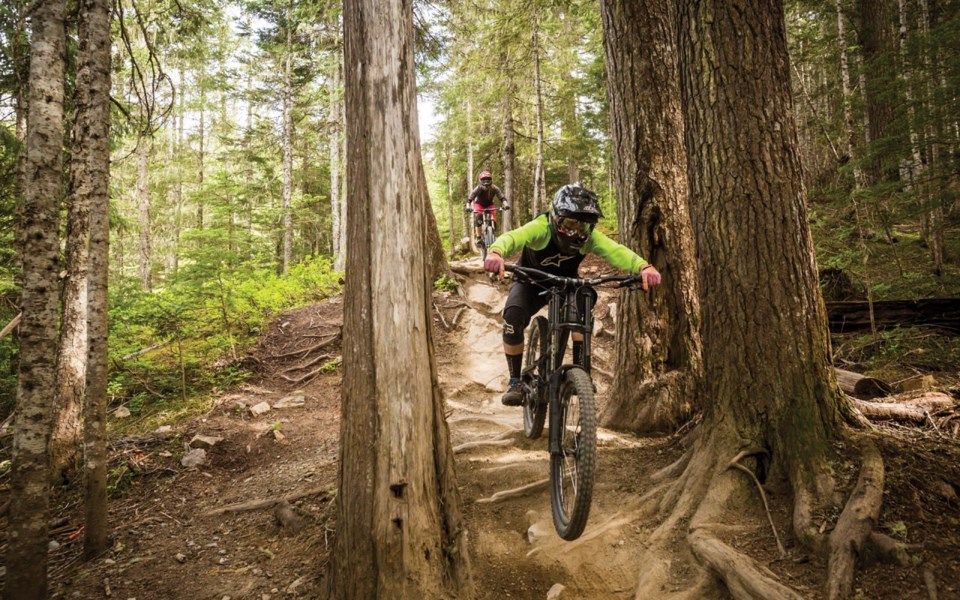At a time when myriad organizations are taking a look in the mirror to see how they could be better citizens, mountain biking is getting into it, too.
The International Mountain Biking Association (IMBA) Canada BC Council will organize the first Mountain Biking Advocacy Symposium in North Vancouver from Oct. 12 to 14 with a focus on building a diverse mountain bike community.
IMBA Canada BC Council co-chair Justin Darbyshire said the inaugural edition of the symposium needed to cut to the chase and ask big questions.
"For the first iteration, we thought it would be worthwhile to have a big conversation—and one that we felt kind of needs to be had in the current state of mountain biking," he said. "We're a pretty homogenous group of people and we think that mountain biking shouldn't be seen like that.
"We want to have a conversation about 'What is diversity? Why is it important to a sport like mountain biking? Why is it important to advocacy and the work we do?'
"We're getting everybody on the same page around the province, in Canada, to start to feel this idea of equity and diversity being important to the advocacy work you're doing."
Planned topics include privilege within the community, building relationships with First Nations, adaptive mountain biking, how to support youth voices, increasing female representation and reducing barriers to participation.
Darbyshire stressed while some topics are about ridership, others are about striving to be aware of the sport's external impacts.
"We're ensuring that our sport appeals to a broad and wide range of people and that we aren't disenfranchising other groups by our behaviours or things we do," he said. "It's not just about increasing participation in the sport or broadening the appeal of the sport to different groups. It is about engaging with other communities—engaging with the First Nations community, bringing in people who have barriers to participation and offering our sport to them through whatever mechanisms are available, whether it's other non-profits or other advocacy groups."
With plans still coming together, Darbyshire said the BC Council plans to reach out to Cycling BC, viaSport and other cycling-adjacent organizations.
The format of the symposium will be different than tourism symposium attendees might be used to, with hopes of fostering more discussion between those present.
"We're really hoping to have a program that reflects conversation," he said. "We're hoping to have it designed around a number of workshops, doing some discussion groups, and (have) less lecture-style presentations so people have engaged discussions."
Darbyshire added that organizers are working closely with Mountain Biking Tourism Association executive director Martin Littlejohn to ensure there is minimal overlap with the symposium that organization hosts. The hope is that the two groups will host their gatherings in alternate autumns.
"We'd love to leave the conversation of destination development and the more government-level discussions to the tourism symposium so that we can work off of each other and build off of each other's conferences," he said.
One of the early impetuses for creating an advocacy group separate from tourism was to find a more effective way to lobby government for funding. Darbyshire noted the symposium will serve as a mixer for attendees to mingle and help develop plans for how to lobby the provincial government, though it won't have a large place in the agenda.
The council is working to address those issues in other ways, as some BC Council members have been nominated to the Outdoor Recreation Council of BC.
Darbyshire added the council is also set to work with the Forest Practices Board on its review of recreation under the Forest and Range Practices Act.
The symposium will take place at Capilano University's BlueShore Financial Centre for the Performing Arts.
Those interested in finding out more can email Darbyshire at jay.darby@imbacanada.com.




